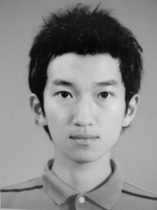
by Kang Dong-in (Korea Univ., 2)
What kind of image pops up in your head when you hear the word "Ewha?" Colleagues of other universities who have any grasp of this name might think of Yoo Kwan-soon, pear blossoms, and, of course, ?omen, the preponderant image.
Meanwhile, those who have longed for interactions with their gender counterparts since enrollments in co-ed middle/high schools might dismiss this aggregate of women as somewhat tedious. Others might be caught up in a mere prejudice that this school is a pawn for feminists who are gnashing their teeth to teach haughty patriarchs the lesson of what 'equality' or 'female supremacy' is all about.
Whatever the allegations of people may be, however, Ewha University, with its history of almost 120 years, is one of the oldest and most renowned schools in Korea. Living up to that expectation, the alumni of Ewha have shown successes in a variety of social sectors. These sectors cover a comprehensive spectrum of Korean society from determined Congresswomen to versatile announcers.
The profound impacts of woman power are reaching every corner of this fast changing society. Graduates and even undergraduates of Ewha have endeavored and are working hard in their sincere efforts to protect and extend women? rights. Despite their continuing efforts and achievements, however, women have still a long way to go, both domestically and internationally. Whereas women constitute almost half of our population, seats for women in the 17th Congress is only 39 out of 299 (13 percent), which might seem like a decent leap in numbers compared to the 16th? 16 (5.9 percent). But taking some examples of Northern European countries whose women make up well over 30 percent of whole members of Congress.
As for the global arena, the endeavor by Korean women to extend women? rights and to enhance their social status should not be parochial, circumscribed merely to Korea but to the entire world. Females in the Middle East still have to endure enormous societal discrimination due to Muslim customs. Thus, international assistance to change existing gender inequality is indispensable. Korean women, having a history of a patriarchal culture of Confucianism, serve as good models for their accomplishment so far and can surely suggest to the discriminated in other countries an effective strategy that can contribute to gender equality in not just the Middle East but remote places of the world without it.
Legal deterrence for women has been almost completely removed. But there still exists a mist of Confucianist ambience in Korean society. Therefore, Ewhaians should continue to strive to remove such anti-equality atmosphere. In the process, however, they should also be prudent not to be too self-interested, working only to female advantage and dominance, but should have a universal consideration for those in need.
As alumni of the school who have been forerunners of winning women's rights, Ewha students should have pride in themselves. At the same time, they ought to have a room for taking care of the socially weak and neglected, as well as strong will to take a step toward the commonwealth of humanity. With that self-confidence and caring mind, Ewha graduates have huge potential as the leaders of 21st century.

